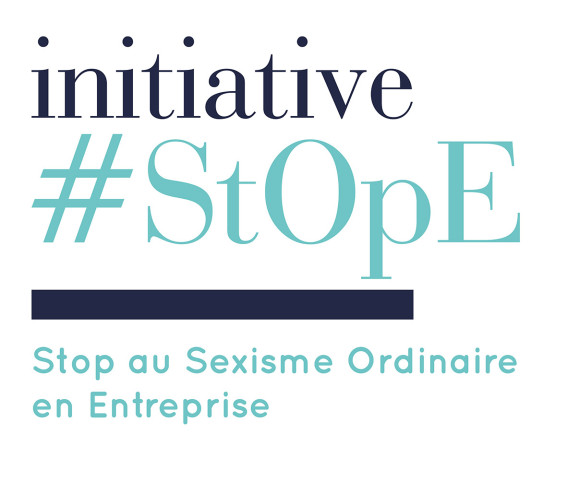About #StOpE
Since january 2021, AFMD coordinates initiative #StOpE : every year, three workshops and an event to welcome to welcome new signatories.

The #StOpE initiative, Fighting against everyday sexism was created by Accor, EY and L’Oréal France in 2018, alongside 30 other companies and organisations. It is the first intercompanies initiative which focus on fighting everyday sexism in the workplace.
The #StOpE initiative is placed under the High Patronage of the Ministry for Equality between Women and Men, Diversity and Equal Opportunities and since 2021, it has been supported and led by AFMD.
Today, it is composed of 199 signatory organisations.
Our commitment
Through the #StOpE initiative, we are committing to push back against everyday sexism in our organisations: it is our responsibility as employers, under our obligation to keep our employees safe and secure; and it is our collective duty to provide working environments where our employees can build their career and put their skills to use without constraints, fears or barriers.
This commitment is translated through three approaches :
- An act of commitment : the #StoPe initiative defines 8 priorities to implement in the signatory organisations during the year to fight everyday sexism.
- A collective of employers : nearly 200 organizations (private and public companies, universities, associations) are involved
- A space for sharing practices and resources : workshops, testimonials, pooling of ressources.
Co-construction and exchanges are at the core of the initiative. Signatories are encouraged to engage together in common actions.
Presentation leaflet
What is everyday sexism ?
Everyday sexism in the workplace encompasses all the attitudes, language and behavior rooted in gender-related stereotypes directly or indirectly targeting a person or group on account of their gender. While they may seem harmless, they intentionally or incidentally, consciously or unconsciously, underhandedly or even well-meaningly discredit and belittle people or groups and alter their physical or mental health.
Manifestations in everyday situations include sexist jokes and comments, remarks relating to maternity, negative stereotypes, rudeness and other signs of disrespect, unsolicited compliments or criticism relating to someone’s physical appearance, and exclusion.
Sources:
- Le sexisme dans le monde du travail : entre déni et réalité. Brigitte Grésy and Marie Becker. French High Council for professional equality between women and men, Ministry of Social Affairs, Health and Women’s Rights. March 2015.
- Kit pour agir contre le sexisme. French High Council for professional equality between women and men. February 2017.
The definition of sexist acts in Article L. 1142-2-1 of the French labor code: “No one shall be subjected to sexist acts, defined as any and all acts relating to a person’s gender which intentionally or incidentally affect his or her dignity or create an intimidating, hostile, degrading, humiliating or offensive environment.”
